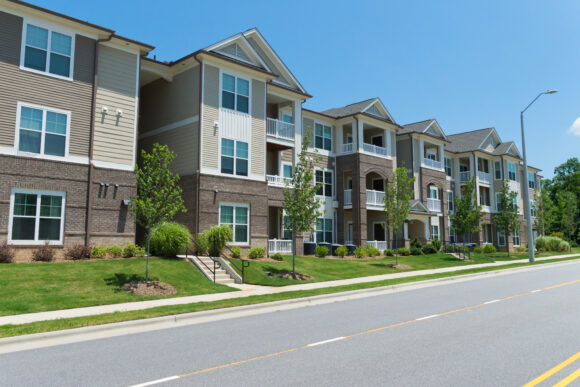A Spanish developer is planning an $880 million workforce housing project in Miami that would include more than 4,000 apartments, childcare, and even a test kitchen — an ambitious bid to offer below-market housing in a city known for ultra-luxury property deals.
The development, called HueHub, is the largest yet proposed under Florida’s Live Local Act, a 2023 law that lets developers bypass local zoning rules if they reserve a share of units for affordable housing.
While the policy has sparked a flood of interest, few projects have broken ground and none have been completed, raising questions about how many will actually get built.
Pablo Castro, who moved to Miami from Spain a few years ago, and previously co-founded Barcelona-based BeCorp, said his goal is to serve residents who earn too much to qualify for subsidized housing but are priced out of many market-rate rentals. He’s planning 4,032 fully furnished one- and two-bedroom units priced at $1,600 and $1,900 a month, with amenities like coworking spaces, tutoring, pools and gyms included in the seven-tower complex.
That rate is on par with rents in West Little River, where HueHub will be developed. The average rent there is $1,500 for one-bedroom apartments and $2,000 for two-bedrooms, according to Zillow data.
Read More: Million-Dollar Tax Bills Pile Up After Palm Beach Wealth Boom
Much of the Miami-Dade region’s recent development has been concentrated in the pricier eastern corridor, closer to downtown and the beach. By contrast, West Little River is a more suburban, working-class neighborhood west of the I-95 — a dividing line long seen as a boundary between Miami’s high-end and more affordable real estate markets.
“Our focus is on the middle class, where we see the need is huge and people are living in very bad conditions,” Castro said in an interview. “Of course, the returns have to work. We’ll do it by having scale.”
The development, Castro’s first in Miami, will spread over a 12-acre site that he purchased in 2023 for $29.3 million in cash. The site is currently a complex of low-rise apartment and single family homes that will be demolished by the end of the year, with groundbreaking in the first quarter of 2026.
Castro said that he and his partner, local developer Laura Tauber, are in talks with a handful of New York-based lenders for financing of up to $600 million.
HueHub comes two years after the Live Local Act became law. The policy allows developers to build as high as the tallest building within a mile, as long as 40% of the units are priced at “workforce” rates, or 120% of the area median income. Governor Ron DeSantis and Florida lawmakers promised drastic improvements to housing stock and affordability, but the policy has suffered setbacks.
With 130 proposed developments to build 40,000 units under Live Local, only a handful of projects have started construction and none have finished, according to the Florida Housing Coalition.
Some projects have been met with local backlash and gotten tied up in courts. Other developers say that the projects don’t pencil out.
“I don’t hear anything about how it solves affordable housing,” Dan Kodsi, the CEO of RPC Holdings, said at a conference earlier this year in reference to Live Local. “It doesn’t reduce the cost of capital, insurance, and just go down the list.”
Castro says he’ll profit in the difficult market of workforce housing by scaling up, decreasing his price per square foot costs. He said the bulk of their construction materials will come from within the US.
HueHub is in talks with unions and local governments to provide workforce housing to employees, aiming to commit 3,000 units to first responders, teachers and healthcare workers at a fixed rent for 10 years.
Castro’s plan also includes a coworking space, art galleries and a test kitchen with cooking classes — largely free for tenants. They’ll also offer discounted, hourly rates for services like dog walking and house cleaning.
Castro is largely unknown in the US. He moved to Miami around the same time he sold his firm BeCorp for 600 million euros ($680 million) to German real estate investment firm Patrizia. BeCorp was known for similar large scale rental projects heavy on amenities, mostly in Barcelona.
Along with purchasing the HueHub land, he’s invested in individual rental units in the city. Since initially filing plans with Miami-Dade County, HueHub has grown by nearly 1,000 units.
“The demand and needs are there,” he said, noting that he hopes to expand the model in South Florida and Texas in the future. “We have to take our chance to meet it.”
Was this article valuable?
Here are more articles you may enjoy.



 Insurance Issue Leaves Some Players Off World Baseball Classic Rosters
Insurance Issue Leaves Some Players Off World Baseball Classic Rosters  ‘Structural Shift’ Occurring in California Surplus Lines
‘Structural Shift’ Occurring in California Surplus Lines  The $10 Trillion Fight: Modeling a US-China War Over Taiwan
The $10 Trillion Fight: Modeling a US-China War Over Taiwan  AIG’s Zaffino: Outcomes From AI Use Went From ‘Aspirational’ to ‘Beyond Expectations’
AIG’s Zaffino: Outcomes From AI Use Went From ‘Aspirational’ to ‘Beyond Expectations’ 

